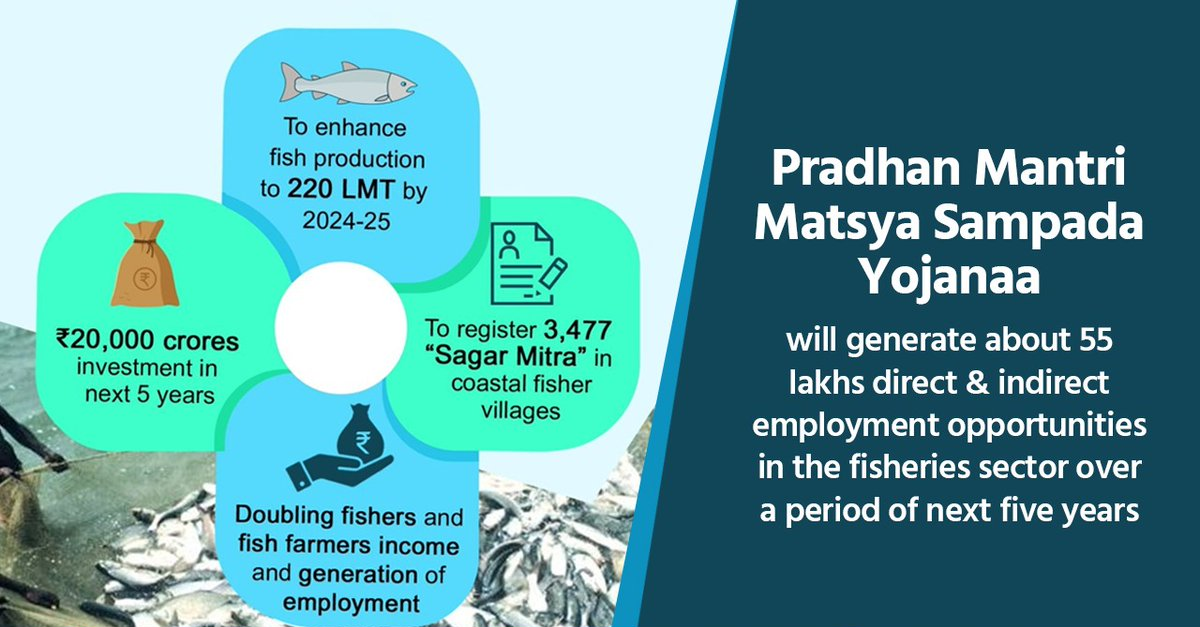Jharkhand Switch to Hindi
Fishery Department Secretary Visits Getalsud Dam for Cage Farming Review
Why in News?
Recently, the Secretary of the Fishery Department, visited the Getalsud Dam in Ranchi to review the progress of cage farming. The review was conducted in collaboration with the Jharkhand Fisheries Department.
Key Points
- Getalsud Reservoir serves as a hub for the conservation of pangasius and tilapia fish species through cage farming.
- The work on cage fish conservation began in 2012-13, witnessing significant success with the establishment of 365 cages under various schemes.
- These cages have contributed to the increase in fish population, with an annual storage of over 25 lakh fingerlings (a small fish).
- Market access is already established, with locally produced fish being sold in nearby markets at an average price of INR 120 per kilogram, contributing to the economic prosperity of the region.
- Under the Central Sector Scheme (CSS) related to Blue Revolution, the Fishery Department initiated the Integrated Development and Management Plan for Fisheries from 2015-16 to 2019-20.
- A total of 14,022 cages were approved under this scheme, with a project cost of INR 420 crores.
- Under the Prime Minister’s Matsya Sampada Yojana (PMMSY), approval has been granted for 44,908 cages, with a total project cost of INR 1292.53 crores.
Cage Aquaculture
- It involves the growing of fishes in existing water resources while being enclosed in a net cage which allows free flow of water.
- It is an aquaculture production system made of a floating frame, net materials and mooring system (with rope, buoy, anchor etc.) with a round or square shaped floating net to hold and culture large numbers of fishes and can be installed in reservoir, river, lake or sea.
- Cage farms are positioned in such a way to utilize natural currents, which provide the fish with oxygen and other appropriate natural conditions
Blue Revolution in India
- It was launched in India during the 7th Five Year Plan (FYP) that went from 1985 to 1990, during which the government sponsored the Fish Farmers Development Agency (FFDA).
- During the 8th FYP, from 1992-97, the Intensive Marine Fisheries Program was launched in which collaboration with MNCs was encouraged.
- Over a period of time, fishing harbours in Tuticorin, Porbandar, Visakhapatnam, Kochi and Port Blair were established.
Pradhan Mantri Matsya Sampada Yojana (PMMSY)
- PMMSY was introduced by the Government of India, as part of the ‘Atma Nirbhar Bharat’ package with the investment of Rs. 20,050 crores, the highest ever investment in the Fishery sector.
- Fishermen are provided with insurance cover, financial assistance and a facility of Kisan Credit Card as well.








%20MPPCS%202025%20Desktop%20E.jpg)
%20MPPCS%202025%20Mobile%20E%20(1).jpg)










.png)
.png)











 PCS Parikshan
PCS Parikshan


